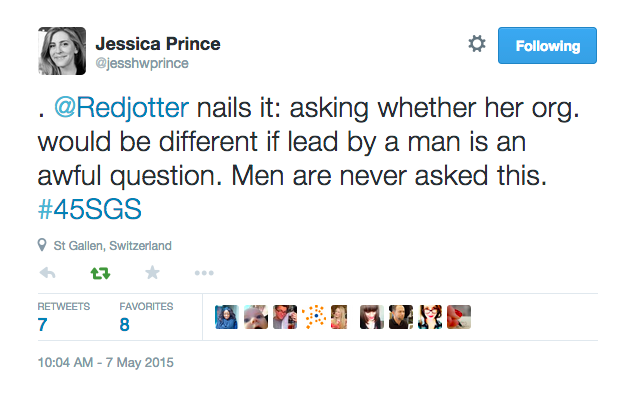St. Gallens Symposium in Switzerland
I have just spent three wonderfully sunny days at the St Gallen Symposium in Switzerland. I was delighted to be invited to share a panel with Alice Bentinck, co-founder of Entrepreneur First, Miku Hirano from Japan, CEO of Cinnamon and Gulnaz Khusainova from Russia, CEO of Easysize. The panel was chaired by Peter Day from the BBC, and the topic we were challenged to explore was female entrepreneurship around the theme of ‘proudly small’. This is a theme that has been on my mind since the launch of Small is Beautiful and I think it's a very interesting and important area to focus on. I must begin with a disclaimer that the label of entrepreneurship being female or male makes me uncomfortable. We never read about the latter do we? In this article I’d like to share the questions I was asked by Peter, and the audience, as well as my answers to hopefully paint a vivid picture for those of you who couldn’t be there. I hope it's interesting or useful to you...

What made you start your business?
I like this question because I think it helps people realise that not everyone who starts a business grew up thinking of themselves as the next Richard Branson. Businesses come in all shapes and sizes and business owners are driven by a whole host of different things. I wanted to use the design process to tackle social problems, I always imagined I would work at one of the service design agencies in London (there weren’t any in Scotland) so I interned at ThinkPublic, the only social design agency doing this kind of work in the UK at the that time. If I’m really honest I didn’t have a good experience, I also didn’t like London very much. Meanwhile, I was becoming increasingly frustrated by the expectation that Scottish design graduates move to London - what a shame. Whilst running a workshop for Thinkpublic I met Sarah, who was studying at GSA and after various chance encounters, tweets, and a Cassie orchestrated coffee we decided Scotland wasn’t big enough for the both of us. We were going to join forces and do some work together.
We never set out calling ourselves entrepreneurs (we still don’t) or on a mission to start a business. We were full of energy, determination and ideas. Our first idea was a project called mypolice.org that we gained funding for, but we needed a bank account and a company name to access the funding - and as the saying goes, the rest is history.
Business is not black and white, there are many shades of grey in-between. You might want to build a digital product, raise finance and sell out. You might want to figure out how to turn your hobby of making flower arrangements into something that pays you. No idea is too small nor too big.
I started by business because it felt like the right thing to do. I felt like I didn’t have any other choice. It’s that simple. I wrote about this topic 'Coming clean on doing what you love" over here too.

There’s not one person I would single out as my mentor. I’m very lucky that I have a whole host of people who I lean on for practical advice and emotional support. I also have a very close and supportive family - this is something I am becoming more and more grateful for.
I am good at asking for help. If I don’t know something, I seek out someone who does know and ask them to help me. Nine times out of ten they do and if they can’t they find somebody who can. I try very hard to do the same when people ask me for help.
At Hyper Island, we spend a lot of time thinking about lifelong learning and what that means. Alvin Toffler says: “The illiterate of the 21st century will not be those who cannot read and write, but those who cannot learn, unlearn, and relearn”. This is absolutely true. I believe everyone should have a mentor and be a mentee their whole life - no matter who you are or what you do. What this word ‘mentor’ means is up to you and the person you are learning with. Get rid of any assumptions about what that relationship has to be and make it work for both of you. I started a reverse mentoring programme with Leslie Evans, a Directorate at The Scottish Government. This was inspired by my desire to challenge the idea that older people should mentor young people. We turned it on it’s head. I built a circle of critical friends who support and challenge Snook and I’m now the proud accountability partner of Scott Sherwood.
You are a role model. We all are. Somebody somewhere wants to be you. How amazing is that? Oh, and of course I got asked if I have more female mentors than male. I’ve never thought about it before and now that I have there is no pattern of gender - only a pattern of empathy, enthusiasm, generosity and expertise.
Would your business be different if it were run by a man?
Seriously? F*** off. The fact I repeatedly get asked this question shines a light on the depth of the ‘equality problem’ we are tackling, better than I ever could. Firstly, the male chairman would not ask a man this question, and secondly, how on earth does one answer the question? It’s absurd. I don’t know what it would be like to run my business as another person never mind another sex.

What is your experience of the ‘glass ceiling’ in the public sector?
My experience of the public sector is one of being an external agency and working from the outside in. Yes, it is dominated by men but Scotland’s public sector is home to some extraordinary female leaders. Louise MacDonald, Karyn McCluskey, Nicola Sturgeon, Sue Bruce, Jackie Killean and Justine Curran to name a few. All of these women I have had the pleasure of meeting and/or working with and I’m grateful for their support, the work they do, and I continue to cheer them on from afar.
Of course, like many nations our public sector is a system designed and led by men. There’s no denying that - there is a ‘glass ceiling’. I often hear Glasgow’s public sector described as being ‘run by an old boys network’ and I definitely did experience that. But I also experienced prejudice from women, mainly in the form of judgement. How do I deal with this? I try to be as open and honest as I can be, and tell the truth as I see it. I call people out and name names. Yes, it’s hard and uncomfortable but I encourage you to do the same.
How do you overcome sexism?
This is a tricky one as sexism is complicated. It takes many different shapes and forms, and context is king. I’m a huge fan of the @everydaysexism (http://everydaysexism.com/ ) project and the way it has shone a light on the scale of the problem for both sexes.
I think solving sexism often boils down to confronting, not the ‘don’t you dare say that’ glare, ok maybe sometimes, but what I’m thinking is the kind of confronting that educates the misinformed. Tell the person that they are being sexist, and they might just listen. Also, call upon your fellow human beings to support you! That’s a call to arms to each and every one of us - if you see it, say something. No matter who you are, where you are or what gender you are.

Where do you learn confidence?
We all want to be confident, don’t we? I get asked this question time and time again and yes I can tell stories from my childhood about how my relationship with my mum encouraged confidence from a young age but really I think the most important stories to tell are about enthusiasm and belief. My belief in the design process and the value of design is unwavering. Similarly, my enthusiasm is genuine and continues to grow and explode with every project and idea I meet. Mark McGuinness introduced me to the idea that enthusiasm is actually better than confidence. Those seeking confidence should replace the word itself with enthusiasm and see what happens. Why? Firstly, confidence is about you – enthusiasm is about your subject. Secondly, confidence is about you (again) and can be quite serious whereas enthusiasm is about others and can be lighter, more fun.
When do I use being a woman to my advantage?
Again, seriously? Men do not get asked this question. This question reminded me of Amy Poehler's campaign #askhermore . The Parks and Recreation star launched a campaign to put an end to the anodyne and repetitive questions women are asked on the red carpet. The Twitter page for her group Amy Poehler’s Smart Girls, which aims to inspire young women, suggested alternative questions to replace the usual ones about fashion and beauty.
"The #RedCarpet is open and we want the media to #AskHerMore! Let's go beyond 'who are you wearing?' and ask better questions! #GoldenGlobes"
What's it like to move from running your own business to having a boss?
Wow. This is the big question isn't it :) So much to say and I'm learning so much. I'm 10 months into this transition and this question is one I try to reflect on often. I will write a separate post...
Myths I’d like to address
Working every 24 hours a day seven days a week is cool
It’s not cool to work 24 hours a day, nor is it cool to work seven days a week. Most ‘entrepreneurs’ are in a very privileged position of being invited to share their ideas, stories and opinions with others, I take this very seriously. That’s why it makes me angry that a huge proportion of the stories focus on aggression and burn out and so few focus on the emotional journey, and exploring how this way of working can become more conducive to a high quality of life.

In some circles, the individual who eats the least, sleeps the least, works the hardest and is the most talented, is the most successful, I disagree. For me, the most successful individual is the one who leaves early to spend time with their friends or family. They can do this because they understand their working day is done, and they have the mental and physically ability to switch off.
I really wish this conversation could have lasted longer as it felt like we were just getting started when time was up! It was fantastic to hear the experiences of the other panellists and I highly recommend that you follow each of them online and explore the work they do. From our countries around the globe each of us have taken a unique path to where we are now, we all have different experiences of entrepreneurship, different ideas about where the problems are and proposals for how things could be better. This is a brilliant reflection of a truth I often need to remind myself; there is no right or wrong way to build ideas - what counts is that you start.
I’d like to say thank you to Rolf and the team at St. Gallen’s Symposium for inviting me to share my story and be part of this conversation. I'd also like to say thank you to my team mate Tash and the rest of my team at Hyper Island for making it possible for me to take the time out to take part in this event.

